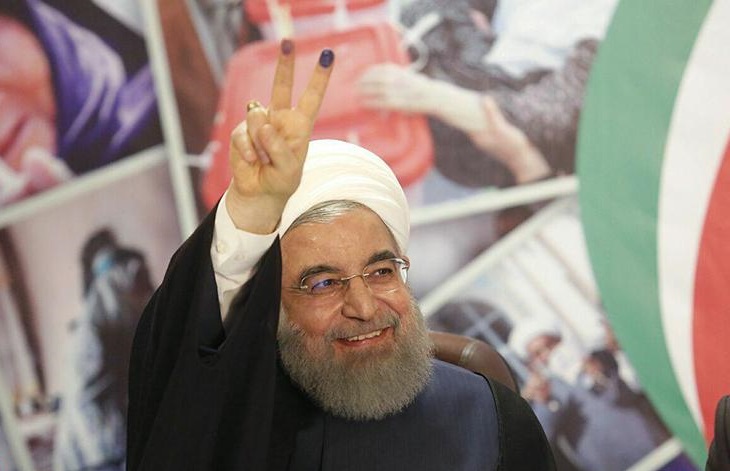During a speech at a government meeting, Iranian President Hassan Rouhani said that Tehran will temporarily stop selling enriched uranium and heavy water. Iran gives other participating countries 60 days to negotiate terms of the transaction. After this period, Iran plans to abandon some more points of the transaction.
According to Mr. Rouhani, his decision was based on “national and strategic interests,” and not on personal interest. "The enemies of Iran, supporters of the hard line of the United States opposed the agreement from the very beginning," said President of Iran.
French Defense Minister Florence Parly later said that Paris supports the JCAP. At the same time, the minister did not rule out that the country could impose sanctions against Iran in case of the failed deal. China opposed Iran’s withdrawal from the nuclear agreement.
The JCAP was concluded in 2015. The agreement implied that in exchange for the lifting of sanctions, Iran would abandon its nuclear program. In May 2018, US President Donald Trump announced his withdrawal from the deal, calling the agreement unfair and making additional demands to Tehran to conclude a new deal.
In the same year, the United States introduced two packages of sanctions against Iran. The first concerned operations with the Iranian national currency and national debt, trading of precious metals, and import of food. The second package introduced an embargo on imports of Iranian oil.
In April 2019, the US also expanded sanctions against Iran, announcing a total ban on the import of Iranian oil. The EU and Turkey called for lifting restrictions, explaining that they threaten the preservation of the nuclear deal with Tehran.
source: reuters.com
According to Mr. Rouhani, his decision was based on “national and strategic interests,” and not on personal interest. "The enemies of Iran, supporters of the hard line of the United States opposed the agreement from the very beginning," said President of Iran.
French Defense Minister Florence Parly later said that Paris supports the JCAP. At the same time, the minister did not rule out that the country could impose sanctions against Iran in case of the failed deal. China opposed Iran’s withdrawal from the nuclear agreement.
The JCAP was concluded in 2015. The agreement implied that in exchange for the lifting of sanctions, Iran would abandon its nuclear program. In May 2018, US President Donald Trump announced his withdrawal from the deal, calling the agreement unfair and making additional demands to Tehran to conclude a new deal.
In the same year, the United States introduced two packages of sanctions against Iran. The first concerned operations with the Iranian national currency and national debt, trading of precious metals, and import of food. The second package introduced an embargo on imports of Iranian oil.
In April 2019, the US also expanded sanctions against Iran, announcing a total ban on the import of Iranian oil. The EU and Turkey called for lifting restrictions, explaining that they threaten the preservation of the nuclear deal with Tehran.
source: reuters.com





